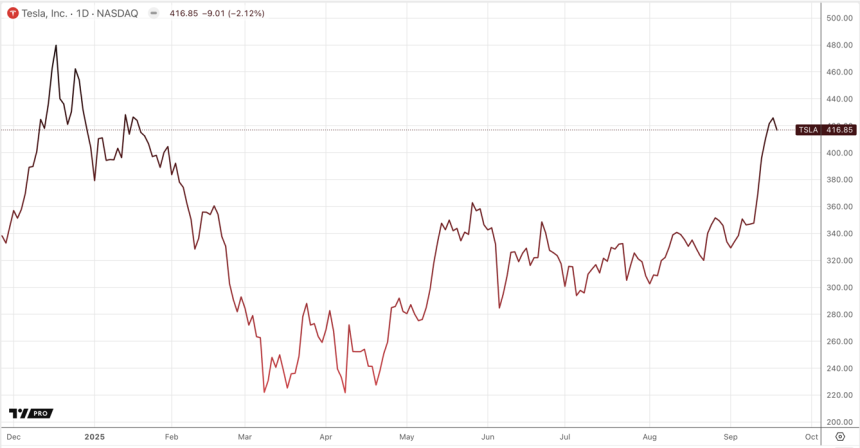While some analysts note the stagnation of the American personal computer market, others observe that shipments decreased by 1.4% year-over-year in the second quarter to 18.6 million devices. It may seem that the so-called “AI boom” should remain the primary driver of growth, but in fact, demand for PCs in the United States remains under pressure. In the commercial segment, however, a 4% increase was noted, as companies prepared for the transition from Windows 10 to Windows 11; this only partially compensated for the decline in the consumer market.
The impact on the stock market was immediate. S&P 500 futures, which are closely tied to the index of the same name, where the technology sector occupies a key portion, reacted with increased volatility. Investors began to factor into pricing the traditional risks associated with demand or competition and the unpredictability of political decisions.
By the end of 2025, sales of PCs and laptops in the United States are expected to reach about 71 million units. This represents a 2.6% increase over last year’s result. Growth in 2026 is projected at 3.5%, with a possible contraction of 3.7% by 2027.
The main buyers remain unchanged, led by corporate clients and government agencies. At the same time, private users are still postponing their upgrade due to economic uncertainty. Essentially, the market is expected to stagnate in the coming years without the transformative impact of AI.
It is against such a sluggish background that the political factor is becoming increasingly noticeable. The decision of the Donald Trump administration to acquire a 10% stake in Intel was certainly significant, if not truly shocking, to Silicon Valley. Clearly, if earlier such steps seemed like far-fetched rumors, now we have to put up with this new reality. Although the US government has not formally received voting rights on Intel’s board of directors, the mere possibility of such close government interference in the operations of a private company is alarming for the entire technology sector.
This is a landmark event for Silicon Valley. Many managers are now compelled to carefully weigh their public statements and initiatives to avoid provoking the administration. Notably, some choose silence, while others openly express loyalty, but everyone recognizes that the risk of losing the White House support has become the number one factor in corporate strategy.
Of particular concern is that the precedent with Intel may spread to other segments. Previously, the US government became the largest shareholder of a rare earth mining company, and the deal between Nippon Steel and U.S. Steel was also closely monitored by the authorities. Now we are discussing technology giants, which, until recently, were associated with complete independence and market self-reliance.
A new model of interaction between government and business is emerging, where the White House chooses the winners and losers in strategic industries. And if in the case of the defense industry or metallurgy, such decisions were perceived as forced measures. Yet, interference in Intel’s activities demonstrates that the government is ready to actively participate in the fate of the largest companies in Silicon Valley.
An equally alarming potential double stagnation awaits the market. On the one hand, the PC market is exhibiting sluggish dynamics, and consumers are not willing to overpay for AI-enabled solutions. On the other hand, the technology sector is being forced to operate under growing political pressure and unpredictable decisions from the White House. This requires taking into account not only economics and innovation, but also the new rules of the game, where technology companies are becoming part of a larger political strategy.
Lynn Martelli is an editor at Readability. She received her MFA in Creative Writing from Antioch University and has worked as an editor for over 10 years. Lynn has edited a wide variety of books, including fiction, non-fiction, memoirs, and more. In her free time, Lynn enjoys reading, writing, and spending time with her family and friends.















